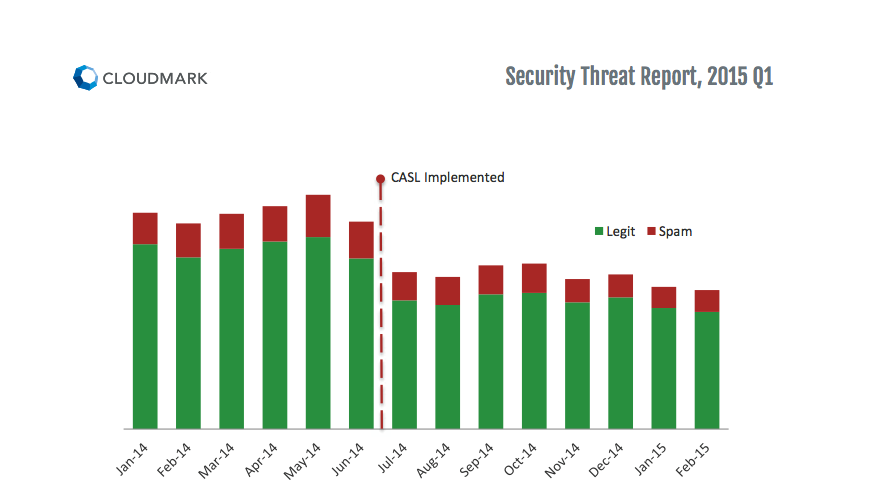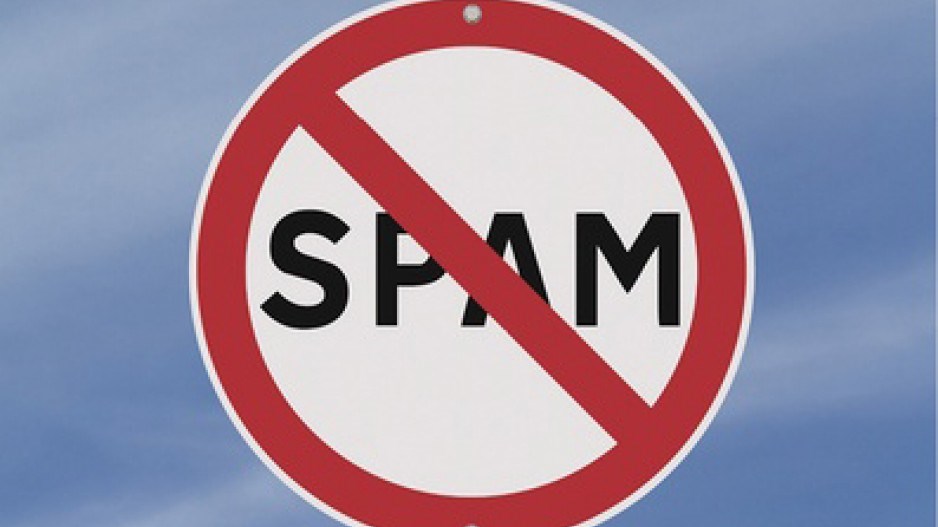It appears Canada’s Anti-Spam Legislation (CASL) hasn’t only reduced spam originating from within the country — it has also discouraged people from sending legitimate emails.
Spam originating from Canada dropped 37% since CASL went into effect last July 1, according to an April 28 report from email security firm Cloudmark.
But Cloudmark’s research also found the monthly average volume of total email — which includes both spam and legitimate messages — dropped 29%.
“We believe this is because there was a lot of marketing email which was not technically spam but did not meet the strong requirements for affirmative consent required by CASL,” Cloudmark research analyst Andrew Conway wrote on his company’s blog.
He added many people might assume most spam comes from countries like Nigeria, China or Russia, but the study found 53% of spam Canadians receive actually originates from the U.S.
But on the flip side, the report found 78% of spam sent from Canada goes to the U.S.
In March, the Canada Radio-television Telecommunications Commission (CRTC) levied its first major fine against a Canadian company for violating CASL.
Compu-Finder was ordered to $1.1 million after the CRTC determined the Quebec-based company was responsible for 26% of all complaints lodged under CASL.
Later in March, the CRTC revealed Vancouver-based PlentyOfFish had agreed to pay $48,000 related to allegations the dating website violated CASL.
“The Canadian law is proving effective in reducing inbox clutter and could act as a model for stronger anti-spam laws in the (U.S), (U.K.) and other countries,” Conway wrote.





